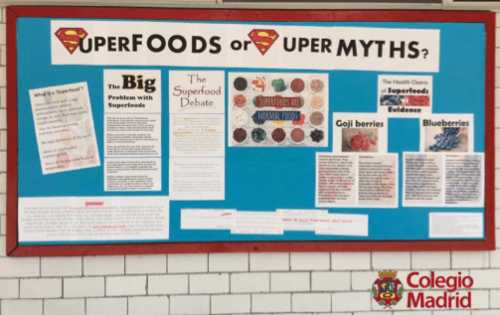Superfoods or super myths?

Science is always investigating the effects of food on our body, and in recent years they have begun investigating superfoods.
Superfoods are food products that are said to have a really high level of good nutrients that do wonders for the body.
Around 2004 the term “superfood” was created by marketers who wanted to help promote exotic fruits from Asia and Latin America and since then it has been applied to foods like blueberries, kale, goji berries, chia seeds, black garlic, green tea, cocoa powder, and others.
In 2007, the European Union prohibited the use of the marketing term “superfood” in products sold on the continent, unless when they were supported by credible scientific research.
But are these foods really that special for our health?
If so, it would be good to know!

¿Súper alimentos o súper mitos?
La ciencia investiga constantemente los efectos de la comida en nuestra salud y en años recientes ha empezado a investigar los llamados “súper alimentos”.
Se dice que los súper alimentos son productos alimenticios que contienen altos niveles de nutrientes y que por lo tanto pueden hacer maravillas por nuestro cuerpo.
Alrededor del 2004, agencias de mercadotecnia acuñaron el término “Súper alimento” con el objetivo de promover frutas exóticas originarias de Asia y América Latina. Desde entonces el término se ha aplicado a alimentos como las moras azules, el kale, las moras goji, las semillas de chía, el ajo negro, el té verde, el polvo de cocoa y muchos otros más.
En el 2007 la Unión Europea prohibió el uso del término mercadológico “Súper alimento” para los productos que se venden en el continente, a menos que cuenten con evidencia científica contundente de sus propiedades.
Pero, ¿son realmente estos alimentos tan especiales para nuestra salud?
De ser así, ¡sería bueno saberlo!